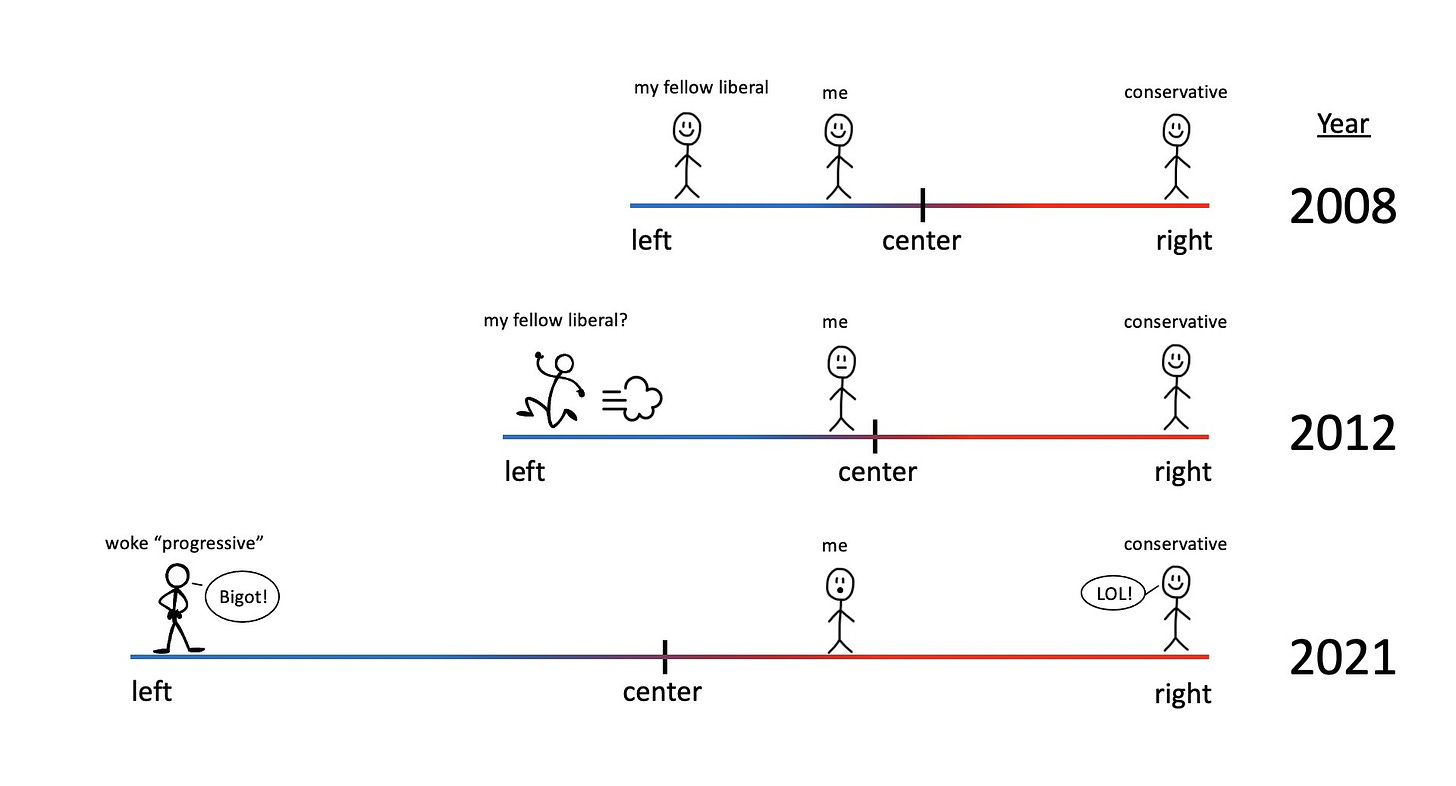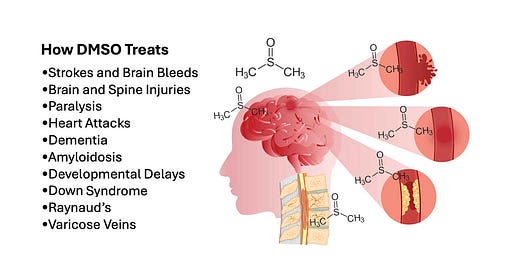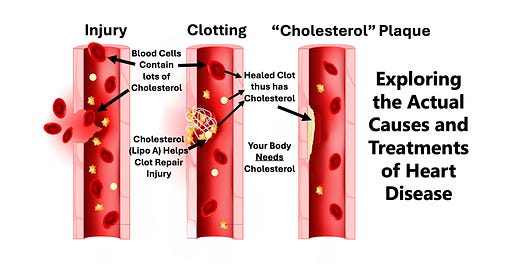
The first part of this series which gives a general overview of medical ethics and their litany of contradictions can be found here.
One of the most frustrating arguments the medical field has refined is the unacceptability of challenging any medical dogma because doing so “harms” patients. For example, I and many of my colleagues believe that the number one cause of infant mortality within the United States is the childhood vaccine schedule (which is also what is most clearly linked to Sudden Infant Death Syndrome), and that vaccines often fail to prevent infectious disease and that most of the diseases we desperately vaccinate against are extremely rare or relatively harmless.
However, the typical response by the mainstream medical community has been to label anyone who opposes any childhood vaccination as a “baby killer,“ which is one of the most difficult slanders to ever come back from. During the hysteria that started with the 2014 Disney measles outbreak, I regularly watched medical professionals around me who emphatically emphasized a commitment to social justice and militantly sought to remove every last micro-aggression from medicine go a step further and wish death upon any child whose parents did not want them vaccinated.
The best way I can think of to encapsulate their behavior would be to state that these individuals (who were avidly anti-Nazi) most likely would've been the first ones to rat out their neighbors for hiding Jews during World War II. This is quite sad and illustrates much of how progressive activism has been destroyed in the last decade.
There are many other places where similar double standards exist in medicine (for example it is always argued that it is critically important to prevent rubella through vaccination because this infection can cause an injury to an unborn fetus, but it is unacceptable to ever prevent the mother’s right to abort that same fetus). As you can imagine, it is quite difficult to have a genuine debate when attempting to save lives is equated with being a murderer.
All of this raises the question: “What is the consistent ethical principle within modern medicine?” It also raises the even more important question: “How has the loss of faith and spirituality within our culture changed the ethics of the sacred doctor-patient relationship?”
Years ago, Robert Mendelsohn M.D. (one of the original medical dissidents who did much to bring the health freedom movement forward) stated that he frequently advised his students the correct answer to questions on medical examinations was always to give the pharmaceutical drug. When I took my final board examination, I somehow forgot Mendelsohn‘s advice and failed one section because I elected not to give pharmaceutical drugs I knew were unnecessary and arguably harmful within their respective patient cases (fortunately I passed the exam).
The practice of medicine within the United States has largely been transformed into a fee-for-service model. In this model, physicians continually perform and document medical services, after which health insurances financially reimburse them for each procedure that was performed.
The reason why surgeons tend to make so much more money than family doctors is that the procedure of a surgery reimburses at a much higher rate than a general medical visit (and specialists within the AMA can decide the reimbursement rates most insurances will payout thereby protecting the specialist’s business model). This is a major reason why the most qualified doctors typically do not become general practitioners-those with the qualifications to become specialists normally follow the existing economic incentives. This also greatly reduces the quality of medical care because many complex issues can only be solved by a talented generalist who can see the entire picture of what is going on inside the patient (especially if they have a pre-existing relationship with that patient, something that rarely happens with medical specialists).
As I searched for the unifying thread in medical ethics, I eventually realized that there was one very consistent principle: whatever results in a billable procedure is typically the ethical choice. Hence the ethical contradiction between allowing abortions and mandating vaccines no longer exists because each one creates business and revenue, and in both cases, the alternative position would be financially detrimental to the medical industry.
In many medical specialties, the same procedure is performed on nearly every patient who sees the clinician. Some, such as an ENT cleaning out your ears are relatively benign and sometimes, quite helpful. Other procedures such as routine pelvic exams are invasive and uncomfortable.
As far as I know, the most problematic recurring billable procedures occur for children. For example, most pediatric medical practices cannot be financially sustained without administering large numbers of vaccines to each child, an issue that sadly has gotten worse in recent times as insurance companies have started to heavily penalize doctors who do not vaccinate all of their patients.
Circumcision for example is a somewhat controversial procedure with many ethical questions attached to it that is regularly performed on male infants. While the rate of circumcision has slightly declined in recent years, it is the default option for most babies I see in the hospital and according to the most recently available dataset, it is still quite common where I live:
I do not believe there are any legitimate justifications for circumcision (outside of specific religious practices which often wait until a bit later in life to perform them-day 7 in Islam and day 8 in Judaism or Christianity, a time that also critically coincides with the blood being better able to clot). More importantly, beyond having minimal benefit, there are a variety of strong arguments against performing this surgery.
Most of the doctors I worked with who performed circumcisions on a daily basis (often immediately following birth) rarely even gave a second thought as to why they performed them. From having discussed the subject at length with the doctors, I believe the primary reason why they circumcise most of the time is that it is a billable procedure they are reimbursed for.
When one looks at the practice of medicine from a broader perspective, many medical practices over the years have gradually shifted to approaches with many ethical concerns and questions of efficacy or safety that are coincidentally reimbursed at a much higher rate. This principle is important to understand because these profitable approaches are so ingrained within the contemporary practice of medicine that few even think to question them.
Consider all the new diseases we have introduced to the population such as the epidemics of "depression“ on “gender dysphoria,” and how medical practice has changed from directly detecting illness to utilizing expensive medical technology for diagnosis. Many hospital conditions can easily be detected by competent physical examination yet the majority of U.S. doctors now exclusively utilize CT scans to detect these issues. Similarly, women are now frequently encouraged to avoid breast self-examinations in favor of (highly questionable) regular screening mammograms (which funds another large medical industry).
It is difficult to pick the worst example of this trend, but my current vote was the panic that recently swept through America from a supply chain shortage in infant formula as it showed women have become so accustomed to not providing breastmilk (which is foundational to health) I didn't even occur to many of them they didn't need infant formula. This is really sad and speaks to the complete lack of an ethical underpinning to modern commercial medicine.
Within many of the more controversial areas of medicine, this “ethical” principle also holds true. For example, in cases when someone does not want a medical intervention they believe may be harmful, the judge will often side with the party petitioning for the medical procedure to be performed. We now have all seen this occur with Covid vaccines (especially in the military where soldiers have no rights when it comes to refusing an order), and as many of you have observed, when someone is subject to an involuntary (and often highly detrimental) psychiatric commitment.
This ethical construct also frequently arises in many other places such as the sad cases of one parent wanting to vaccinate, psychiatrically drug, or sex change the child, while the other parent does not, and in most cases the legal system will rule in favor of performing the medical intervention. The vaccine dispute between parents is quite common and has happened to friends of mine (I believe this is one of the most important questions to ask someone before you have kids), one reader shared a sad case of extremely harmful antidepressants being court-ordered on her daughter, and Jeff Younger’s lawsuits to prevent his ex-wife from gender transitioning his son are notorious within Texas.
This principle also holds true in cases where there is a significantly greater violation of patient autonomy that is no longer a family dispute. Cases like these are especially common when there are larger financial incentives in place for bypassing ethical conduct (such as forcefully recruiting children born with rare genetic disorders into clinical trials of experimental treatments for those disorders, or as Anthony Fauci is well known for doing, recruiting vulnerable orphans for the early tests of toxic but potentially lucrative drugs).
Every now and then, there is a case of a child with cancer who tries to stop chemotherapy because of the severe adverse events that result from it (often this decision comes from the parents), after which the family goes into hiding. One of best-known recent examples occurred in Connecticut where Cassandra, a 17-year-old woman and her mother were both adamantly opposed to the 17-year-old receiving chemotherapy. The state disagreed:
DCF, acting on behalf of the state, says it's obligated to intervene in this case. It's their duty to act when a child would die if medical decisions were left up to the parent. DCF's decision is based on experts — in this case, the doctors who diagnosed and are treating Cassandra who all agree she needs the chemo.
To step in, DCF had to win temporary custody of Cassandra." Even if the decision might result in criticism; we have an obligation to protect the life of the child when there is consensus among the medical experts," DCF said in a recent statement.
The Connecticut Supreme Court, of course, supported this argument and despite making a good legal case she was old enough to make her own medical decisions (as you know younger children seeking highly lucrative gender affirming care are not held to this standard), Cassandra was removed from her home, placed under guard in the Connecticut Children’s Medical Center, and forcefully administered chemotherapy until she turned 18. It was ultimately unsuccessful and she died a few years later. In the words of her mother: “The cancer never went away…They said they saved her life. They lied. She suffered for five years. It was horrific. If you did that to your dog, you’d get arrested.”
From an ethics standpoint, this is quite hard to justify until you remember the “treatment” for Cassandra's cancer costs well over $10,000 a month.
Similar degrees of gross ethical malfeasance regularly occur within the federal government. In a recent article, I reviewed some of the truly evil experiments Anthony Fauci has conducted on vulnerable civilians, and his refusal to ever come clean to the experimental participants over the fact he was being paid handsomely to experiment on them. Many more are discussed within The Real Anthony Fauci, an excellent book that overlaps with many of the areas discussed in the first phase of this substack.
I do not believe I am exaggerating when I claim that Anthony Fauci is the individual who has had the greatest influence on scientific research in the United States, something quite concerning given the complete lack of ethics in many of his studies. When I reviewed that story before, I left out the most incredulous part – since 1996 his wife has served as the chief bioethicist of the United States and for some reason still has not gotten around to addressing the ethical lapses of her spouse.
(There were so many captions that came to mind for this picture I wasn’t able to pick one to add in…)
Forced Medical Procedures
As our recent times have helped to make clear, once you take away the core protections afforded to individuals, the laws that remain will always be abused. It is for this reason that I tend to favor laws that protect individuals from criminal behavior and their governments (these are typically much more difficult to abuse), and in most cases, I oppose laws designed to coerce any type of activity.
I created this substack because I felt our current times made it critical to shed light on the smallpox debacle, where a deadly and ineffective vaccine continually caused smallpox outbreaks, and each time this happened, governments around the world attempted to address this new problem with more and more vaccine mandates. Public resistance to these disastrous policies grew and as the century progressed, mass protests and violent clashes began emerging against the increasingly draconian government mandates. In a true taste of irony, the thing that finally ended smallpox was a city going against the “wisdom” of the medical field, removing the mandates, and switching to a novel common sense approach for ending the disease. My hope in sharing this was so we could remember the struggles of our forefathers so that it does not take a century this time to repeal the mandates.
One of the more problematic Supreme Court rulings from the time, Jacobson vs. Massachusetts held that Jacobson, who having previously suffered a severe adverse reaction from a smallpox vaccine, nonetheless did not have the right to refuse a smallpox booster. Following this ruling, Virginia passed a law authorizing the involuntary sterilization of people deemed to be "feeble-minded," or mentally ill. Citing Jacobson vs. Massachusetts, a Supreme Court Justice wrote: "The principle that sustains compulsory vaccination is broad enough to cover cutting the Fallopian tubes."
Before long, this court ruling gave way to a number of unimaginable horrors as the eugenics movement marched through the United States and then the rest of the world. Contrary to popular opinion, the eugenics movement never disappeared, and after shaping the public policy of Nazi Germany, continued to be endorsed by the ruling elite leading to the odd situation now where one avowed eugenicist was the designer of AstraZeneca’s vaccine.
Dobbs v. Jackson Women's Health Organization
Many questions have surrounded the recent Supreme Court ruling that took down Roe vs. Wade. In the following sections, I will share a few perspectives on it I have not heard be part of the conversation. Some things in life are very difficult to understand and leave each of us grasping for meaning, but others are very understandable once you know the constraints those events operate within-which I hope I can do here.
Most of the current conservative Supreme Court justices, hold a judicial philosophy that Supreme Court rulings must reflect the original intent of the Constitution (or the law in question at the time it was written). In turn, proud textualists such as Neil Gorsuch openly express disdain for liberal justices interpreting the law in a manner that advances their current political agenda. There are pros and cons to each judicial philosophy, and some very positive things have also come about in the past from the opposing philosophy of judicial activism.
The unprecedented times we live in now have made me be of the perspective that it is much more important the government is prevented from violating fundamental human rights than that attempts are made to change the government for the “better.“ Hence even though I believe there is much within the US Constitution that could be changed and would significantly improve the country I do not want anyone to have the power to change it.
I am now almost certain that if changes in the Constitution were to be permitted, corrupting influences, like the ones that cause most legislators to never vote in the interest of the 99%, would guarantee the Constitution that emerged after these changes would be much worse than it was at the beginning. It is for this reason that I accept a textualist is the least bad option we can follow. Dishonest individuals in power will always abuse laws for their benefit at the expense of the common people and addressing this basic tendency of human nature is a necessary requirement for any effective legal system.
When I listened to the oral arguments on the OSHA mandate to require all workers to be vaccinated, I was astonished at the fact the liberal justices did not care about the legal implications of the decision and were instead zealously arguing for the need to save lives with the vaccine at any cost (similarly Biden’s official arguing the case did not seem to have a good grasp of the law and was just restating the need for vaccines).
This was particularly disturbing given that the liberal justices were visibly demonstrating the Dunning-Kruger effect and citing absurdly erroneous figures as clear proof their mandates must be supported at any cost. Conversely, the conservative judges avoided considering the merits of the mandate themselves and focused solely on the fact OSHA did not have the legal authority to make the mandate.
Many of the Supreme Court’s rulings since the conservative supermajority appeared on it have reflected a bias towards not giving the federal government powers it was not authorized to have, and whenever there is an ambiguity, passing those powers to the states. Since most of the highly questionable policies that have been enacted during the pandemic were not backed by the law, it becomes critical to have a court that has a framework for reigning in harmful overreach by the government (such as the OSHA mandate they struck down).
I thus argue the recent Supreme Court ruling that the federal government has no authority on state-level decisions over abortion likewise reflects this judicial philosophy.
What Are the Implications of Repealing Roe Vs. Wade?
The key point I have not seen anyone mention during this debate is that oral medications to induce abortions are now widely available, and they often represent the preferred method for abortions early in pregnancy (the current preparation is approved for being used until 10 weeks of gestation). For all practical purposes, regardless of where someone lives in the United States, that means this method of contraception is easily accessible and there is no possible way a conservative state government could prevent its citizens from getting a pharmaceutical medication that is widely available in neighboring states.
For this reason, the only real effect I can see of individual states being allowed to outlaw abortions is a decrease in abortions being performed after 10 weeks of pregnancy.
Something that is not appreciated about the abortion debate is that it is continuously used as a wedge issue to polarize and divide people so that they avoid focusing on the failures of their own powerful party and ignore the class issues 99% of the population would otherwise agree upon. When the previous wedge issue, gay marriage was effectively settled by the Supreme Court legalizing gay marriage, I predicted that abortion would become a much hotter topic as it was the only wedge issue left. This prediction was somewhat accurate, but it failed to encapsulate transgender advocacy taking the place of advocacy for the homosexual community, something many of us never expected.
After Trump became president, to retaliate against him and “Resist,” many liberal states began passing “abortion rights” laws, such as New York’s 2019 Reproductive Health Act. Although they rarely happen, this act in effect legalized third-trimester abortions, which are highly controversial because the fetus can survive outside the womb in the third trimester (the act’s provision reserving these procedures in instances of dangers to the mother’s health provision was meaningless because the emotional distress of having a child is permitted as a medical justification). There were also a variety of other polarizing provisions in the law such as empowering healthcare workers besides doctors to perform abortions and removing a variety of protections preterm infants had held (such as it being illegal to euthanize them if they were alive following the abortion).
These highly partisan laws understandably upset the pro-life community and resulted in harsher anti-abortion laws then being passed by conservative legislatures. This momentum eventually culminated in Roe V. Wade being repealed. A common adage is that it is unwise to pursue revenge because it normally creates a variety of consequences that greatly outweighs the benefit of the actual revenge. Similarly, I feel the push during the Trump years to politicize abortion was ultimately catastrophic for the pro-choice crowd.
This hyperpolarization and the tendency of the activist Left to overplay their hand on a variety of social issues has reciprocally caused a large degree of alienation in many of the progressives who traditionally supported the Democratic Party (for example leading many of them to join Trump's political movement). I also believe the activist Left’s decision to go all in on vaccine mandates since 2014 illustrates that many of their political positions are spoon-fed to them by corporate oligarchs and do not in any way represent their actual values. A meme that was recently reposted by Elon Musk eloquently describes what has happened over the last decade:
My own belief that I have tried to emphasize throughout this substack is that in most cases, if something is true, once presented, the majority of the population will come to an agreement on it. Because of this, I disdain all the unnecessarily divisive issues as they prevent people from ever coming together in the areas where we would all find a common ground. At this point, I think nearly every single pro-choice woman in the country would give nearly anything to go back to how abortion laws were seven years ago, yet few of them have the insight that everything that has happened now was a consequence of the activist Left overplaying their hand on a highly polarizing approach rather than focus on something the general public can get behind.
After publishing this article, I was informed that Naomi Wolf had likewise written on this topic at the same time. She provides a more detailed case on the fact that abortion has been changed from a medical issue designed to benefit women who need it to a political cause where the activist Left has attempted to push the envelope as far as they possibly can over abortion. Because this issue has changed from being about women to about politics, it has greatly alienated a large portion of the country. One of my continual regrets about the world is how infrequently people think about the consequences of their actions because they become so narrow focused on the specific thing they want that they often miss the bigger and much more important picture around them.
In the final section of this article, I will attempt to meet the responsibility I have created by criticizing the existing ethical standards within medicine and share the ethical framework I have developed to address this question. As you might imagine, I do not emphasize facilitating billable procedures; to the contrary, I always try to minimize the cost for my patients. I hate paying for expensive medical treatments, so in accord with the Golden Rule I can’t in good conscience do that to other people.

















This part really Peed me off:
So, this 17 year old Cassandra was considered 'too young' to be able to refuse chemotherapy for the cancer in her body, but, a child as young as 16 is allowed to 'decide' their gender and a doctor will give them life-altering hormones.
Yep. Clown world.
I appreciate your trying to find the ethical philosophy behind commercial health care but in actuality, there isn't any. Forcing people to take procedures is just so barbaric and antiquated, it reminds me of the 14th century. Good that you mentioned circumcision, the most barbaric thing a mother can have done to her son. The medical cartel doesn't even consider the effects of what this might have. The entire medical industry is so distasteful and primitive, it is sure to fall right on its face soon and deservedly so. As with the courts and the government. These constructs are utterly olde world and need to go. What will take their place is we the people make the proposals and we vote on proposals, not on people. Changing the people in an inherently predatory structure will not change anything. The structure itself must change. I really enjoyed your article and appreciate you bringing these issues into the public space.